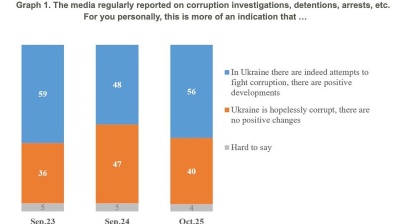Malaysia should regularly bolster its contingency funds to better handle significant economic shocks, as highlighted by the Malaysian Rating Corp Bhd (MARC) in a recent statement, The Edge Malaysia reported. The COVID-19 pandemic demonstrated the need for substantial "rainy day" funds that can be used in times of crisis under specific conditions, MARC noted.
The National Trust Fund of Malaysia (KWAN) held assets totaling $3.58bn (MYR15.56bn) after financing the purchase of COVID-19 vaccines in 2021. For 2024, the Malaysian government allocated MYR2bn for contingency savings as part of its budget. Additionally, Malaysia maintains a Federal Contingencies Fund to cover emergency expenses.
MARC raised concerns over Malaysia's increasing government debt, which reached 64.3% of its GDP in 2023, nearing the statutory limit of 65%. This debt limit was revised upward from 60% in 2021 due to the growing need for financial flexibility. Government borrowing has grown annually by 10.3% since 2020, significantly outpacing the nominal economic growth rate of 5.1%. By the first quarter of 2024, Malaysia's government debt had reached a record high of RM1.21 trillion.
Despite the Public Finance and Fiscal Responsibility Act 2023 (FRA) setting a debt cap at 60% of GDP, Malaysia's government debt ratio is expected to remain high in the short term due to slow fiscal consolidation. MARC warned that the projected fiscal deficit of 3.5% for 2024-2026 could accelerate debt growth, especially given rising debt service charges and ongoing expenditures.
The FRA lacks a specific limit on debt service charges, which are projected to increase to 16.2% of revenue in 2024, exceeding the prior threshold of 15%. MARC also pointed out that while fiscal reforms could improve adherence to FRA guidelines, other off-balance-sheet items, such as contingent liabilities—amounting to 17.2% of GDP by the end of 2023—pose additional risks to fiscal health.
Many of the government guarantee recipients, especially in sectors like finance and utilities, have low or negative returns on assets, necessitating potential future capital injections. MARC emphasised the importance of enhanced accountability, oversight, and transparent public-private partnerships to improve fiscal efficiency and manage these liabilities effectively.
The report further highlighted the necessity of robust debt management, particularly given the increase in short-term debt issuance since 2020 to fund pandemic-related expenses. The share of short-term debt (less than three years) in gross borrowings rose to 18.9% from 2020-2023, up from 6.2% in the previous period.
While Malaysia's exposure to foreign exchange risk is low, with only 2.6% of government debt in foreign currencies and non-resident holdings at 24.6%, MARC noted that the country's international reserves to short-term external debt ratio had declined to one-to-one in 2023, down from two-to-one in 2009. Strengthening this reserve ratio could provide a more substantial buffer against external economic risks, MARC suggested.
Data

Ukraine’s credibility crisis: corruption perception still haunts economic recovery
Despite an active reform narrative and growing international engagement, corruption remains the biggest drag on Ukraine’s economic credibility, according to a survey by the Kyiv International Institute of Sociology.

India’s retail payment revolution
India’s payments landscape has reached a pivotal stage, with digital transactions now accounting for 99.8% of all retail payments.

Military aid for Ukraine falls despite new Nato PURL initiative – Statista
The Kiel Institute for the World Economy found that military aid to Ukraine dropped sharply in July and August compared to previous months, despite the implementation of the Nato PURL initiative.

IMF cuts Russia’s 2025 growth forecast to 0.6%, leaves Ukraine's unchanged at 2%
The International Monetary Fund has lowered its forecast for Russia’s economic growth in 2025 to just 0.6%, marking the second-steepest downgrade among major economies, even as it raised its global outlook.




